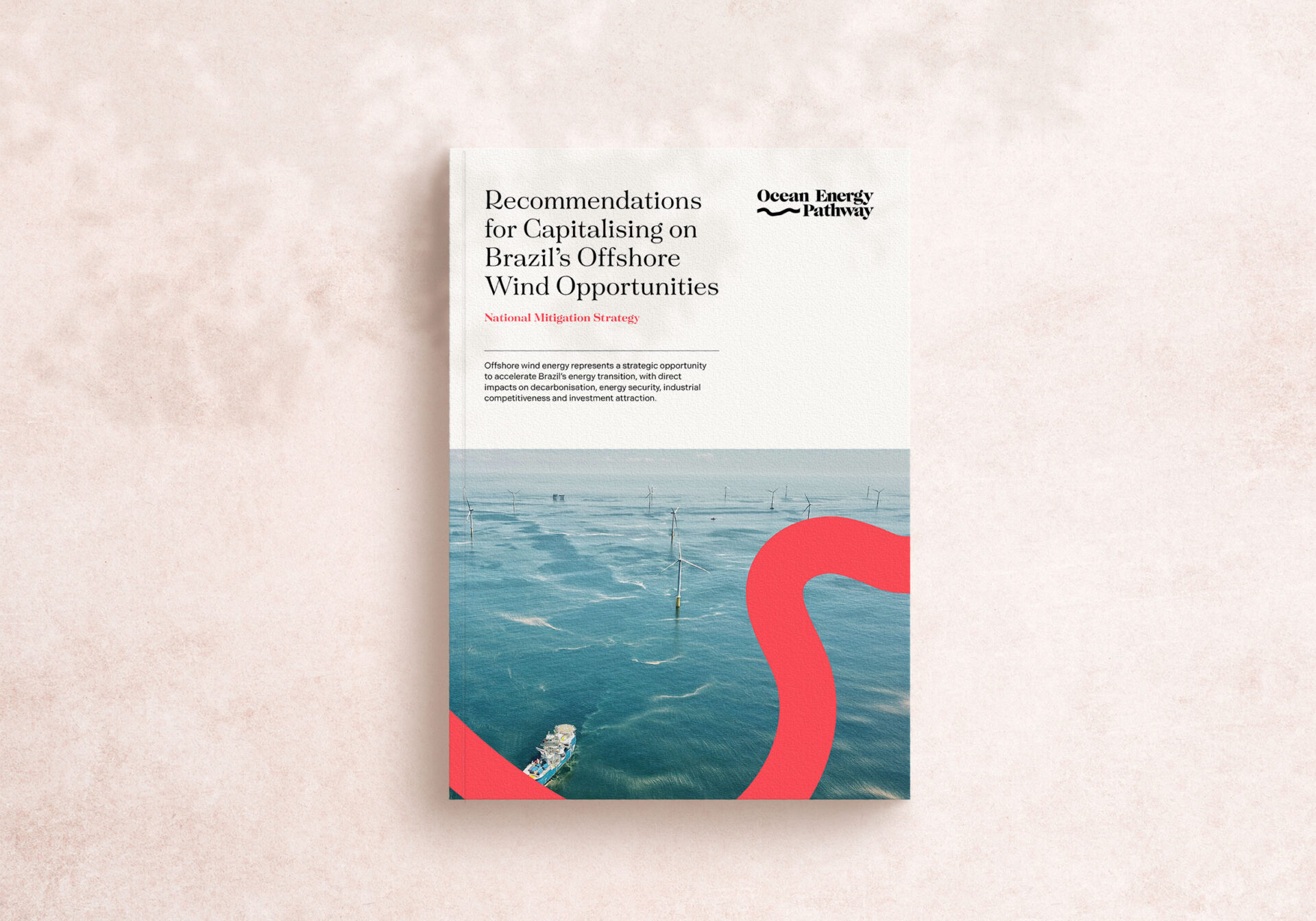Offshore wind energy represents an opportunity for Brazil to accelerate its energy transition, increase its energy security, industrial competitiveness and investment attraction. With a technical potential exceeding 1,200 GW and a vast coastline, Brazil is well-positioned to lead in the development of offshore wind. Ocean Energy Pathway put forward several recommendations to Brazil’s National Climate Plan during its development.
Recommendations for Capitalising on Brazil's Offshore Wind Opportunities
Download PDFBrazil stands at a pivotal moment in its energy development – one in which climate action and economic transformation go hand in hand. This document presents a set of 10 insights and recommendations, developed alongside our partners Associação Brasileira de Energia Eólica (ABEEólica) and the Global Wind Energy Council (GWEC), acting as a guide to the sustainable development of offshore wind in Brazil.
Proposed Recommendations
These recommendations call for the Brazilian government to develop a signal of intent, by setting out clear targets for offshore wind in the energy mix by 2035, gradually moving away from fossil fuels, accelerating permitting and licensing regulations, committing to the Marine Spatial Planning process (MSP) and other supportive actions.
Strategic Vision and National Targets
- Define a minimum target for offshore wind by 2035.
- Recognise offshore wind’s scalability and role in the energy mix.
- Promotion of electricity demand scenarios via the National Industrial Decarbonisation Strategy (ENDI).
Governance and Regulatory Framework
- Regulation of the first auction for the assignment of areas for offshore wind power.
- Institutional strengthening of IBAMA for environmental licensing of offshore projects.
Infrastructure, Investment and Innovation
- Development of regional port hubs specialising in offshore wind power.
- Organisation of the fiscal transition from fossil fuels.
- Promotion of Research, Development and Innovation in the offshore wind chain.
- Integration of offshore wind power into decarbonisation strategies for electro-intensive industries, via green hydrogen, ammonia and methanol.
Sustainable Siting and Environmental Licensing
- Commitment to accelerating Marine Spatial Planning.




